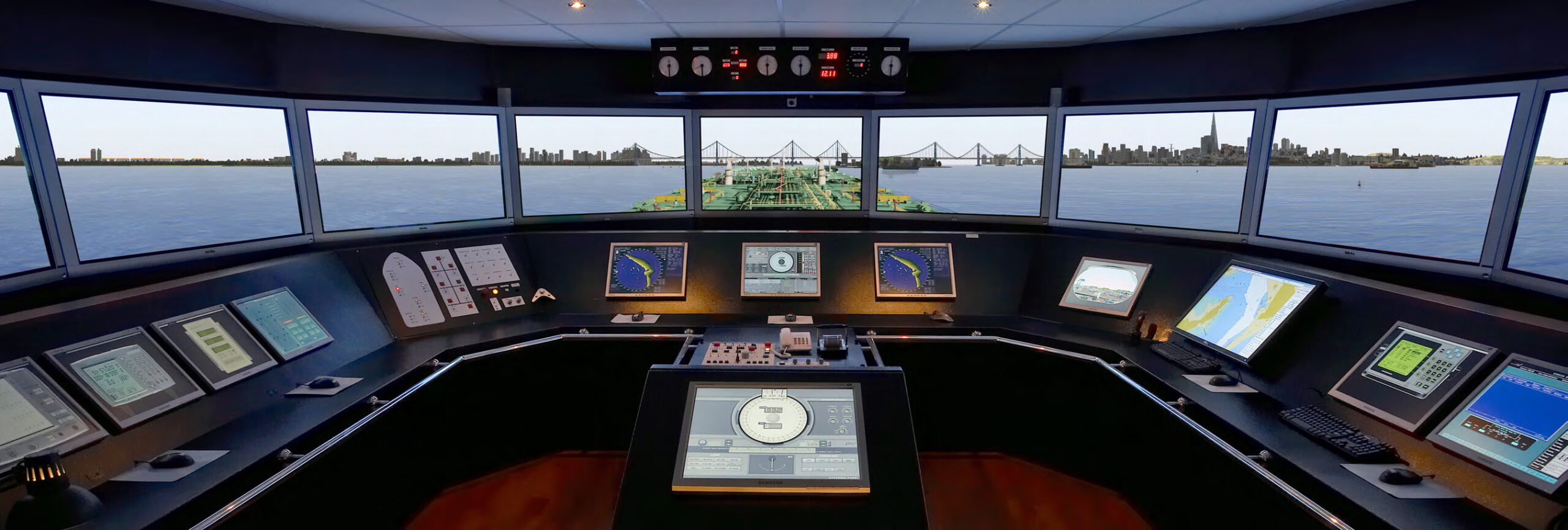Why Maritime Training Simulators Are Essential for the Marine Industry

As vessels become “smarter,” regulations grow stricter, and the oceans more unpredictable, the skill and preparedness of the crew play a critical role in operational success. Advanced maritime training simulators provide real-life, immersive environments that train seafarers to handle real-world situations, reduce risks, and prepare for safe and efficient crew operations. In this blog, we will explain the importance of maritime training simulators in the marine industry and examine the growing role they play in making the maritime sector more efficient, safe, and environmentally sustainable.
The Increasing Need for Maritime Training
The maritime sector is becoming complex due to advances in vessel technology, regulations, and environmental policy. Crew members in the maritime industry are now required to manage extremely sophisticated navigation systems, respond to complex emergency scenarios, and comply with international safety and environmental standards. Conventional training approaches, which invariably rely on classroom theory and limited practical experience, have failed to provide maritime employees with the necessary preparation for the unpredictable challenges faced at sea. The need for more comprehensive training has led to the rise of maritime training simulators, which provide safe, controlled, yet highly realistic environments for all types of crew training.
What are Maritime Training Simulators?
Maritime training simulators are advanced technology systems that replicate the environment of a ship, port, or offshore platform. They use virtual reality (VR), augmented reality (AR), and sophisticated software to mimic real-world operational needs, like navigation, engine operations, emergency response, and communication procedures.
These range from desktop-based software to full-mission bridge simulators that replicate the entire bridge environment, including radar, electronic chart systems, and engine controls.
Advantages of Marine Training Simulators
1. Enhanced Safety and Risk Mitigation
Simulators offer trainees the opportunity to navigate hazardous scenarios (collisions, groundings, equipment failures, and environmental conditions) without risk. Therefore, the trainee can experience the event and practice the skills needed in a high-risk situation. By providing this type of experience, the trainees develop confidence, decision-making skills, and familiarity with emergency mitigation, which ultimately lead to safer operations onboard.
2. Cost-Effective Training Solutions
Unlike real vessels, simulator training is less expensive, easier, and in some instances, provides experiences unattainable on real vessels. These training expenses are commonly incorporated in total training budgets and may result in massive savings and realistic situations. Simulators assist in enhancing fuel efficiency, cutting down on wear and tear on vessels, and do not interfere with operation. It is repeatable as long as the skills are acquired and adequately evaluated through simulation exercises.
3. Compliance with International Standards
The International Maritime Organization (IMO) requires ongoing competencies for seafarers, which include simulator-based exercises, to meet the Standards of Training, Certification, and Watchkeeping (STCW). Simulators help facilitate compliance with international standards and procedures, allowing organizations to avoid penalties.
4. Adaptability to Emerging Technologies
With the recent changes to the marine industry with automation and digitalization, simulators allow flexible training processes for crews on new technologies, such as electronic navigation systems, autonomous operations, and green ship technologies. This flexibility allows crews to quickly remain current with the innovations and developments in the marine industry.
5. Eco-Friendly Training
Simulated training reduces the environmental impact by cutting down on fuel consumption and emissions associated with live vessel training. This aligns with the maritime industry’s increasing commitment to sustainability and carbon footprint reduction.
Industry Trends Driving Simulator Adoption
Training has to keep pace with the transformation of the maritime world. The following are some of the key trends that are increasing the importance of simulators:
- Greater Automation: Modern ships are becoming more automated, making simulator training essential to operate the systems and troubleshoot them properly.
- Focus on Human Factors: Simulator training enhances crew resource management (CRM) skills, emphasizing communication, leadership, and teamwork.
- Remote and Hybrid Training: Cloud-based simulators have improved, enabling wider access to high-quality training.
- Customized Scenario Development: Simulation scenarios are now offered for specific vessel types, trade routes, and operational issues.
Choosing the Right Maritime Simulator Provider
Selecting a reliable maritime training simulator provider involves evaluating:
- Realism and the technical complexity of simulators
- Compliance with IMO and STCW standards
- Multiple training scenarios and training modules
- Customization to meet special training requirements
- Maintenance and support services
- Proven track record and industry reputation
Conclusion
Maritime training simulators have transformed the way seafarers prepare for the demands of life at sea. By replicating real-world conditions in a safe, controlled environment, they allow crews to build critical decision-making skills, improve teamwork, and gain confidence in managing both routine operations and emergency scenarios. Unlike traditional methods, simulators provide hands-on experience without exposing vessels, cargo, or lives to unnecessary risk.
Beyond safety and efficiency, these systems also support compliance with international maritime regulations, reduce training costs, and align with the industry’s sustainability goals by minimizing fuel consumption and emissions during practice sessions. With rapid advancements in vessel automation, green technologies, and digital navigation systems, simulators ensure that maritime professionals remain adaptive and future-ready.
For shipping companies, training academies, and regulatory bodies, investing in advanced simulator technology is not just a training option but a strategic necessity. It strengthens workforce competence, reduces operational risks, and safeguards reputations in an increasingly competitive and regulated industry. As the marine sector continues to evolve, simulators will play an indispensable role in shaping the next generation of skilled, confident, and environmentally responsible seafarers.



